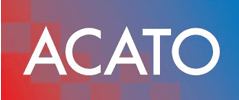ISO 9001 Certification costs
There are clear differences in ISO 9001 certification for corporations compared to small companies. The time required to create the documentation is significantly less. The auditors also need far fewer days to check the QM system and carry out the on-site audit. Such a quality management system (QMS) cannot simply be created in 2 hours. Where a corporation quickly burns several million euros, an SME can carry out documentation and audits at significantly lower costs.
How much does ISO 9001 certification cost for small businesses?
Small companies usually do not have the time to create the ISO 9001 quality management system on their own. Consequently, an economical solution is needed here that still enables an individual version of the management system. Experienced auditors quickly recognize run-of-the-mill templates that have no real connection to the company being audited. This can be expensive if you have to go for the audit again.
The following example shows what an SME with approx. 1-10 employees can expect:
- Creation of management system documents (£3,000 – £12,000)
- Awareness training for employees (£100 – £500)
- Audit of documents (£3,000 – £12,000)
- On-site audit including travel costs (£1,500 – £3,500)
- Issuance of the ISO 9001 certificate (£500 – £1,000)
As a result, SMEs can receive an individual management system (QMS) and ISO/IEC 9001 certification from just £5,000.
The more complex the process landscape and the business model, the more at risk the quality of a company’s products and services. By introducing a QMS management system, these critical aspects should be better managed.
What does ISO 9001 certification include for SMEs?
In order for an SME to successfully implement ISO 9001:2015, it must go through the following steps:
- Preliminary discussion of the ISO 9001 project
- Creation of ISO 9001:2015 documentation
- Identification of necessary improvement measures
- Preparation of audit documents
- Training of employees
- Submission of the QMS management concept to the auditor
- Carrying out the on-site audit
- Processing of any requests for improvement
- Updating ISO 9001 documents
In a small company, these work steps can be designed very leanly. If you prepare well, you will usually receive few or no requests for improvement after the audit. In order to achieve this high level of excellence, you need to have an iso 9001 checklist at hand. Otherwise you will miss vital aspects in your documentation.

How can choosing a certification body add up?
Many companies believe that external auditors are being showered with gold by certifiers. In reality, the external auditors’ fees are only a fraction of the certification costs charged to the company. Well-known certification organizations pay their freelancers a small (sometimes unattractive) daily rate. However, this has consequences for the companies on the waiting list.
Especially in specific specialist areas, there are few specialists in certification organizations and on the free market who can and are allowed to carry out an audit in accordance with standards. This leads to a bottleneck. Certification bodies try to use and expand limited human resources as best as possible. However, the appointment of an auditor is linked to a very long and complicated process chain. This means that new auditors need almost a year before they can independently become active as lead auditors. As a result, several certification bodies share their freelance auditors because not every one of their customers always needs to be audited at the same time.
However, the costs of certification can be increased if the intervals between audits and corrective measures become disproportionate. The accreditation bodies also play a significant role because not every supervisory body has the same requirements for certifiers. The DAkkS is a very strict and demanding accreditation body. As a result, German certifiers often have to put in more effort, which ultimately increases costs for their customers. Due to their insight into the operational practices of their customers, the certification bodies are very careful to act economically, efficiently and moderately.
Therefore, not every certification authority is comparable and can offer interesting advantages. Since this selection can be quite complex, we accompany our customers through the entire certification process.
Which government funding programs sponsor a QMS project?
The UK government uses various programs to promote quality improvement in small to medium-sized companies. This means that, under certain circumstances, part of the eligible consulting costs can be reimbursed by the respective state government. We are continually compiling the latest information on these governement funding projects for you. The following list will take you to our information page, where we have put together all the necessary application forms as well as information about the funding criteria and the funding application process:
FAQs regarding ISO 9001 Certification costs
Becoming ISO 9001 certified can cost a small business around £5,000 for developing a tailored quality management system and obtaining the certification. The costs can vary based on the complexity of the company's processes and business model.
The cost of obtaining ISO 9001 certification can vary depending on the size and complexity of the organization, but for small to medium-sized businesses, it can start from around 5,000 EUR. The cost includes creating a customized quality management system, documentation, employee training, audits, on-site visits, and the actual certification issuance.
To obtain ISO 9001 certification, a small business must go through steps such as pre-audit discussions, documentation creation, identifying improvement measures, employee training, audit submission, on-site audit, addressing any corrective actions, and updating documentation. It is crucial for small companies to streamline these steps for a successful certification process.
The duration for obtaining ISO 9001 certification varies depending on the size and complexity of the organization's processes and business model. Generally, small businesses can achieve certification in a shorter timeframe compared to larger corporations.
A small business can obtain ISO 9001 certification through steps like developing ISO 9001 documentation, identifying improvement measures, training employees, and undergoing on-site audits. The process can be streamlined and cost-effective for SMEs with proper preparation, leading to fewer post-audit revisions and efficient certification acquisition.
ISO 9001 certification is valuable for small businesses seeking a cost-effective way to establish a quality management system. The certification process can be streamlined for small companies with proper preparation, minimizing the need for extensive corrective actions post-audit.
The cost of ISO 9001 certification varies depending on the size and complexity of the organization. Small and medium-sized enterprises (SMEs) can obtain certification for as low as £5,000 , including the development of a custom Quality Management System (QMS) and ISO 9001 certification. The expenses typically involve document creation, employee training, audits, on-site visits, and certification issuance. Be aware of potential additional costs if follow-up actions are required after the audit.
ISO 9001 certification costs can vary depending on the size and complexity of the organization, ranging from around 5,000 EUR for small businesses up to potentially higher amounts for larger corporations. The cost includes document creation, employee training, audits, on-site visits, and issuance of the certification.
ISO 9001 certification is crucial for small businesses as it helps in reducing audit days, costs, and ensuring the quality of products and services. The certification process involves steps such as documentation creation, employee training, audit preparation, on-site audit, and continuous improvement efforts.
